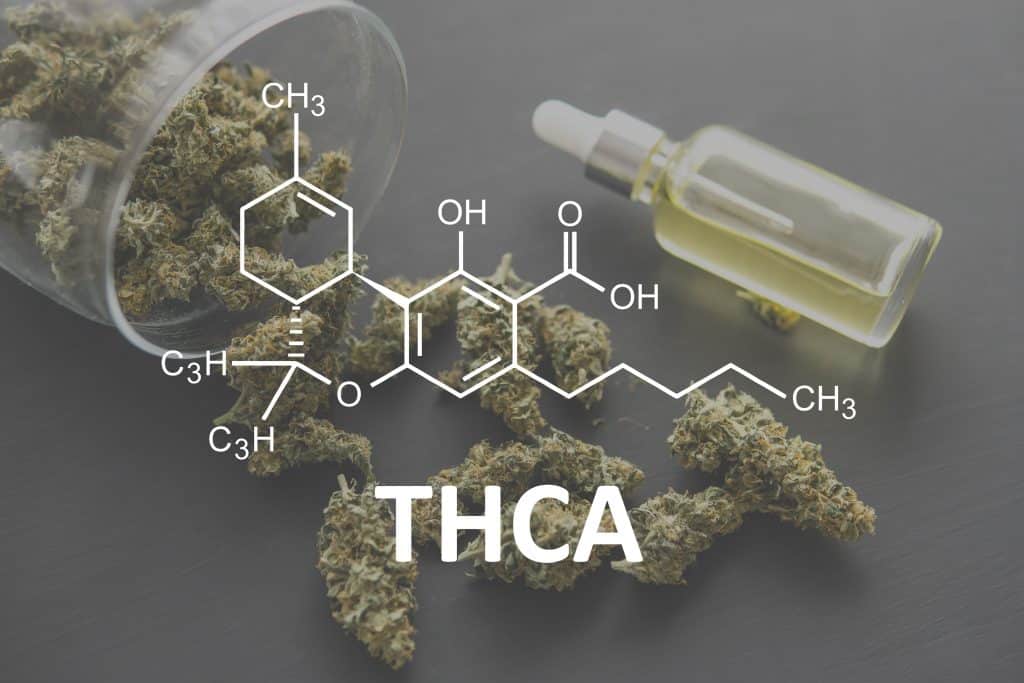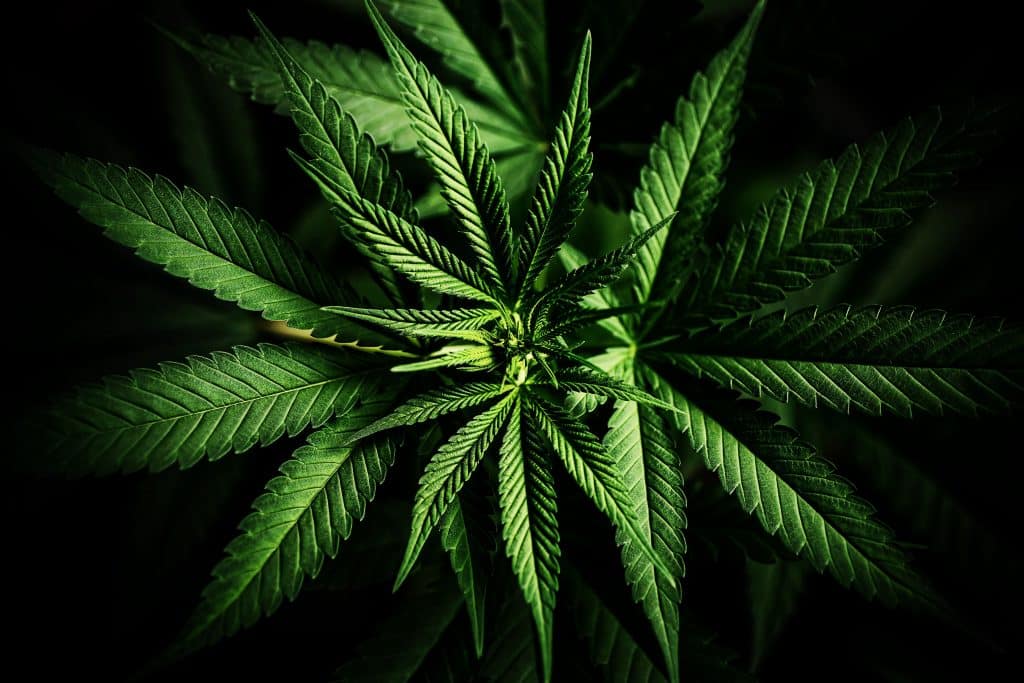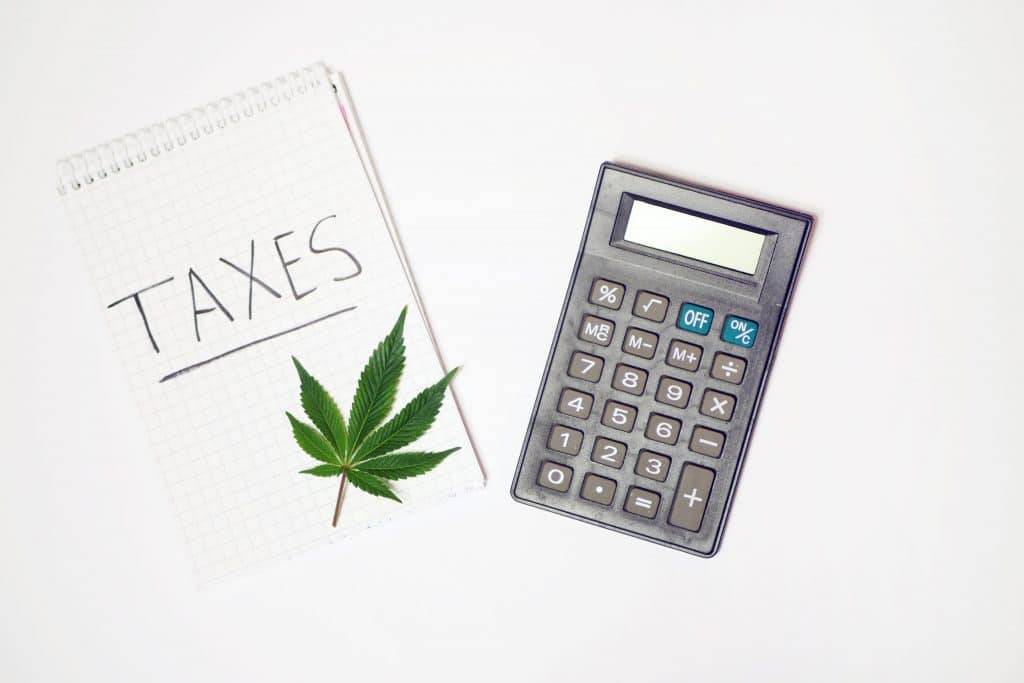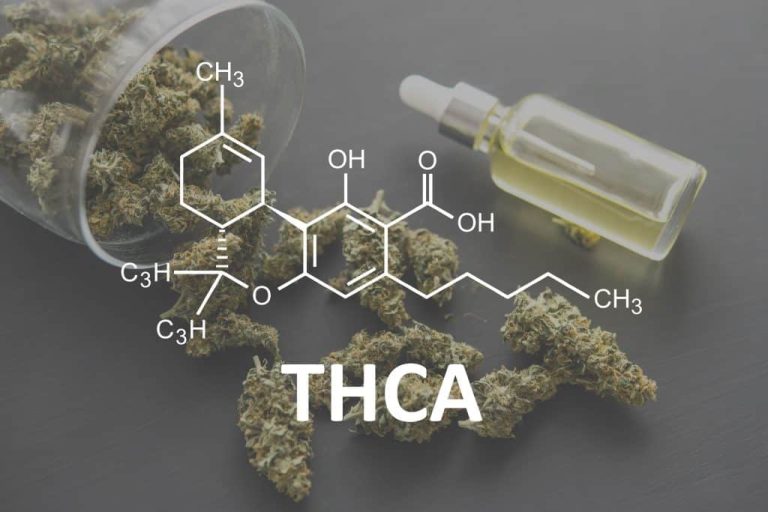Loopholes are fun. They provide a way to get around a law, without really breaking it; by taking advantage of inconsistencies or gaps in specifics. Sometimes they really exist, and sometimes they’re ideas that are simply not worth fighting by regulators. The most recent loophole to rock the cannabis world, is surrounding the use of THC precursor, THCA. What’s this loophole all about? Read on for more info.
What is THCA?
We’re all at least somewhat familiar with the cannabis plant. At least enough to know that it goes by the names ‘marijuana’ and ‘hemp’ as well, and that there are some plants more geared toward THC, and some toward CBD. The former group is legally identified as ‘marijuana,’ while the 2018 Farm Bill specified the lower-THC grouping as ‘hemp.’ And this designations leads to the THCA loophole.
These terms are related to THC amount in the plants, with a .3% cutoff between the two categories. But this distinction undermines something important: that realistically, no growing cannabis plants have a lot of THC. They’re all low-THC, because THC barely exists in the growing plants. THC is a product of heating weed, which means if a cannabis plant is taken and used raw, there will always be negligible amounts of THC involved. It requires heat to turn the precursor acid – known as THCA – into the THC that makes us high.
THCA, aka tetrahydrocannabinolic acid, is what really exists in high amounts in the cannabis plant. But the thing about THCA? It doesn’t get you high, and thus can be used from a raw plant, without psychoactive effects. By itself it has the chemical formula C22H30O4. When heated, it decarboxylates to C21H30O2, meaning it changes in the presence of heat. As you can tell by the formulas, they are closely related, but not the same thing. Decarboxylation is done through smoking, vaping, or leaching out active compounds using heat, like in cooking.

In a raw cannabis plant, decarboxylation does take place, but at slow rates and in low amounts. If you find some really old, dried-out weed, it’s likely to have decarboxylated a little. But if you see a nice fresh plant, still in the ground or just recently harvested, it’s likely to have almost no THC. In either case, the amounts are small enough to not cause any effects.
Is THCA legal?
Depends where it’s from. Marijuana is defined like this: “all parts of the plant Cannabis sativa L., whether growing or not; the seeds thereof; the resin extracted from any part of such plant; and every compound, manufacture, salt, derivative, mixture, or preparation of such plant, its seeds or resin.” According to this definition, a precursor acid is still technically a part of the plant, and therefore illegal.
But that only refers to high-THC marijuana. The last US Farm Bill made a legal distinction for hemp plants, giving them this definition: “…the plant Cannabis sativa L. and any part of that plant, including the seeds thereof and all derivatives, extracts, cannabinoids, isomers, acids, salts, and salts of isomers, whether growing or not, with a delta-9 tetrahydrocannabinol concentration of not more than 0.3 percent on a dry weight basis.”
So now we have the situation wherein identical compounds are legal when taken from one place, and illegal when taken from another. This resembles another loophole related to delta-8 THC, which operates similarly. The main difference is that the production of delta-8 requires synthetic processes, which takes it out of the definition of hemp; since the definition never allowed for synthetics. In the case of THCA, it doesn’t require synthetic processing, making it difficult to use the same argument if its place of origin, is within legal limits.
This is the THCA loophole. Whereas delta-8 cannot be extracted in high-enough amounts from either hemp or marijuana for direct product manufacturing (it occurs in amounts far too small), there is a huge amount of THCA in marijuana plants, and at least some in hemp plants. Way more than delta-8 anyway, and enough for extraction.
Since the legal application is based on the decarboxylated compound, and not the one found in the plant, selling hemp flowers as THCA flowers, isn’t technically incorrect. The THCA loophole exists by defining the plants by their THC amount, rather than their THCA amount. While its really a case of semantics, ‘THCA’ flower is any cannabis plant with below .3% THC, with no stipulation for THCA quantity.

How the THCA loophole causes problems for the government
The government likes to apply hefty taxes on any cannabis product, and its not into products sold which aren’t regulated, and therefore not able to carry this tax. Sin taxes put on cannabis products by every state, are the primary source of revenue for regulating bodies. Sin taxes are excise taxes that span a large range, some as low as 10%, and some well over 30%. Though they’re supposed to be put on dangerous products that pose personal or societal harm, the application on cannabis products means applying this tax in places where cannabis is a sanctioned medication. Massive contradiction.
The government has already had a bad time with the cannabinoids market, since it can’t get a handle on it, and that means lost tax revenue. In an effort to turn people’s opinions against the compounds, and the black market operators who sell them, the DEA and FDA have made different statements and warnings; though they’re not really backed by a death toll. I always find that part funny considering that the same governments (state and federal) support opioids through regulation; which killed close to 100,000 people in the US alone in both 2021, and 2022.
The only real ability the federal government has, is to backhandedly go after these companies by trying to ruin business. When Shopify dropped all cannabinoid sellers last year, it wasn’t stated that the move was from government pressure, but its also unlikely Shopify would reduce its own income with a ban it didn’t need to do. What the US government can do is go after internet platforms that sell the products, or mess with banking, or credit unions of those who work with sellers.
This won’t get the products out of corner shops, or even stop the internet sales; but it can cause a bit of a kink for companies, and keep them on the move to find different sales venues. Realistically, the industry exists in large numbers both on and off-line, and if it were that easy to stamp out, it would’ve been done already.
Where the federal government runs into an extra issue with THCA, is that it can’t ban it. If it put a federal ban on it, this would undermine its own definition of ‘hemp.’ If THCA is illegal, then so is all cannabis. And it wouldn’t matter at that point if it was from hemp or marijuana. Unlike delta-8 THC which comes with the issue of the need for synthetic processes, THCA extraction, does not.
How does the government deal with THCA loophole?
Governments don’t like to bring things up if it makes them look bad, or backs them into a corner. For all the strife in the cannabis industry now, you’d think the governments in question would do whatever they had to. Just to preserve a consistent tax revenue line, even if just in small amounts like standard income tax. Instead, they ignore the issue of sin taxes, as if the subject isn’t pertinent. As if the taxes must exist to facilitate the industry. In fact, when California finally updated cannabis tax laws last year, it did nothing to do away with these high taxes, which increase prices. And it didn’t improve its market issues either.

Likewise, the government doesn’t want to mention THCA because it doesn’t have an argument against it. Instead, it focuses on what it does have an argument against – delta-8 THC, and other synthetically-made cannabinoids. And it works to lump THCA into that category, so it doesn’t have to answer for the difference. New possible plan? A delta-8 ban, and lowering the THC limit for hemp to attempt to exclude cannabinoids like THCA. Realistically, neither is a probable answer to get rid of lower-priced black market products. We know this from the existence of black markets in general.
The big looming question now? How do governments so completely not learn? US governments (state and federal) have been fighting these black market sellers for several years, and with no real progress. Cannabis legalizations in general are an attempt to divert from already existent black markets, which have been around as long as prohibition. And no government actions have worked, except creating the legal industries, which diverted a certain amount. This most recent THCA loophole is just a showing that the black market will always prevail in the face of bad regulatory moves.
Conclusion
What will the federal government do about all this? Probably nothing. Maybe it’ll update definitions in the next Farm Bill. Maybe it’ll try to go after illegal sellers online. So far, history indicates that it has very little power to do much at this point, which means the sale of THCA flowers through the loophole, is likely to continue. And this offers yet another avenue for the black market to dominate the legal one; simply because of poor and ongoing judgement in regulation.
Hello readers! We’re happy to have you with us at Cannadelics.com; a news source operating in the independent space, focused on reporting for the cannabis and hallucinogen industries (and beyond). Hang out with us whenever you can to stay in-the-loop; and check out the Cannadelics Weekly Newsletter, for direct updates and the coolest of product promotions.
